The Biggest Missteps in Military History
Missteps in Military History
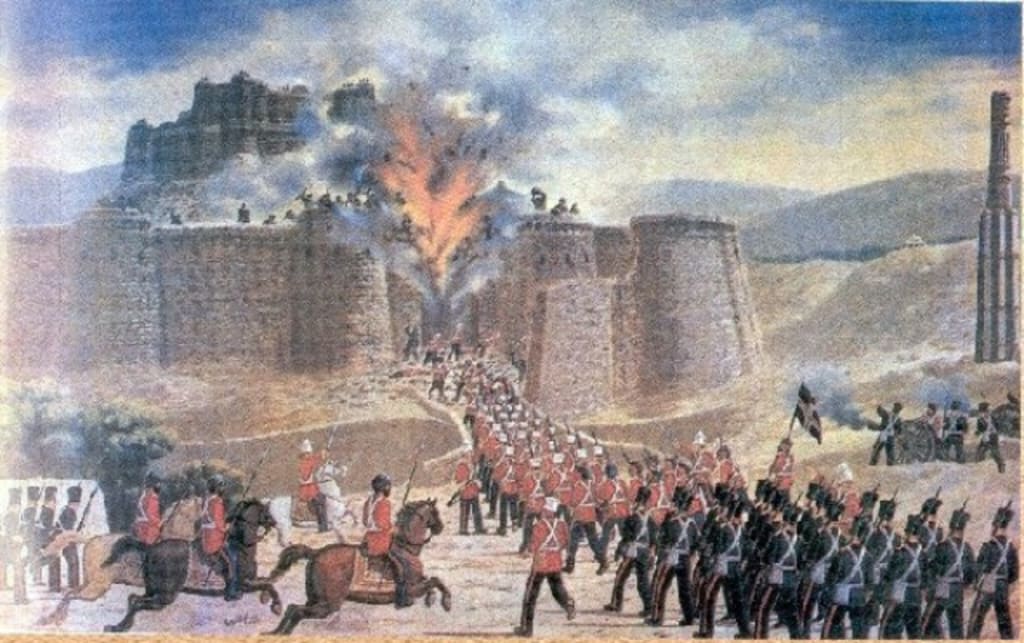
War is – more often than that – a numbers game. Unless something unlikely happens, it’s usually the side with the numerical advantage that goes home with the victory, which has been especially true in history. Many modern weapons – like nukes – can easily make brute force obsolete, though that wasn’t the case for most of our history. If you took a bigger and more intimidating army to a battle, you were almost-always more likely to return victorious.
That is, of course, unless you happen to go out of your way to make a mistake (we’re looking at you, Napoleon). Quite a few traditionally-superior armies in history have been defeated due to unnecessary blunders that could have been easily avoided. While many of these disastrous military blunders in history may not be common knowledge to most of us, almost all of them were instrumental in deciding the outcome of their respective wars.
8. The British Invasion of Afghanistan
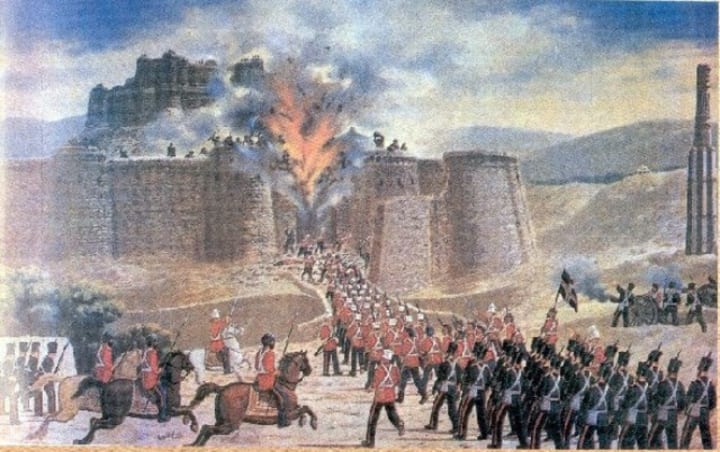
If you take a look at Afghanistan’s history of the past three centuries or so, you’d realize that – just like Russia – it’s near impossible to successfully invade it, regardless of the size of your army. Many huge empires have tried their hand at it, though the country’s tough terrain makes it impossible for anyone to sustain their invasion efforts for long.
One of those invading empires was the British empire, whose invasion of Afghanistan in 1838 is still one of the biggest military mistakes in history. The aim of the invasion was to establish British influence in Afghanistan; a strategically crucial region for both the British and Russian empires at the time. They toppled Dost Mohammad and installed Shah Shujah Durrani, a leader seemingly-sympathetic to the British cause.
All of that, though, changed when the local population started to revolt, and the British army – now comfortably living in the Afghani capital with their families – had to retreat. They were promised safe passage back to India by Durrani, though – even if they didn’t know it at the time – he had no intention of letting them go. The British army was harassed by quick hit-and-run fighters throughout their long and arduous journey, killing almost their entire force. By the end of it, only one British soldier made it back to their garrison.
7. The Battle of Dien Bien Phu
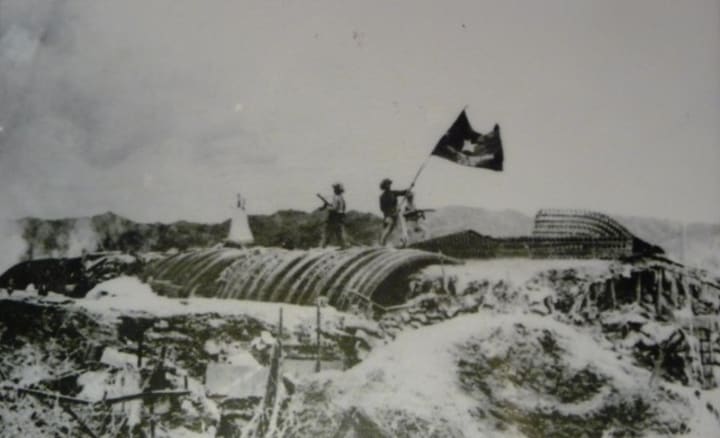
Whenever we talk about a war in Vietnam, it always turns to the war in Vietnam, even if the country has seen more wars in its history than most other countries around. By far the biggest one – at least for them – was their war of independence against the French back when it was known as Indochina. It was a long, drawn out war which wasn’t going particularly well for the rebels in the beginning, though it all changed with the decisive battle of Dien Bien Phu.
If you look at the area on a map, it’s easy to see what went wrong. Dien Bien Phu is a remote region surrounded by mountains and hills overlooking it, which the French somehow took to be the perfect place to dig in and defend. They had intended to end the war with superior firepower and supplies, though they – much like many others – vastly underestimated the Viet Minh’s knowledge of their own terrain.
In one of the biggest military mobilizations in history, the rebelling Vietnamese forces carried tons of artillery and other explosives up the surrounding mountains overlooking the French, and started bombing. What looked like an impenetrable defensive position to the French turned out to be a trap. They vastly underestimated the anti-air capabilities of the Vietnamese, as their air force was soon unable to resupply them. This battle proved to be the bargaining chip Viet Minh was looking for. The French – unable to keep up their supply chain for long – soon surrendered.
The battle was a turning point in the French-Indochina conflict and directly paved the way for Vietnam’s complete independence from France.
6. The Charge of the Light Brigade
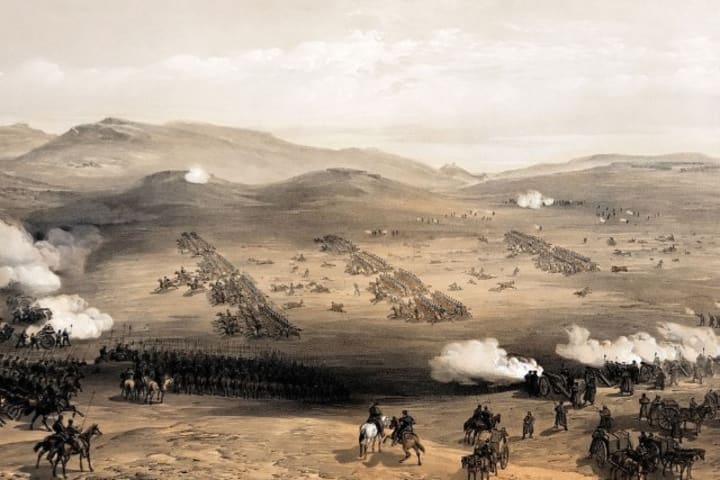
The story of the Charge of the Light Brigade has been romanticized and translated to poems and stories; you may even mistake it to be complete fiction. Unfortunately for the light brigade in question, that’s not the case, as it’s named after one of the biggest military blunders in history.
It happened during the Battle of Balaclava in the larger Crimean War, which was only one of the many conflicts most of the European powers were busy with throughout the 19th century. The charge was an actual charge made by British forces towards a fortified Russian position, committing about 670 men to the maneuver. Unfortunately due to miscommunication between the ranks, the other sections of the forces couldn’t join them, leading them to charge into eventual slaughter.
The casualty rate of the charge was a staggering 40%, and the only people who survived were the ones who managed to get behind the Russian guns. Witnesses describe a scene full of charred limbs, smoke, screams and splattered blood. It’s no surprise that it remains one of the bloodiest days in the history of the British army, all because they didn’t shout their orders loud enough.
5. The Battle of Carrhae
https://youtu.be/I4x4Ef42Lj4
The history of ancient Rome is littered with glorious victories that are hard to replicate even today, though there are quite a few major defeats, too. Roman strength lay in adopting the tactics of their more successful enemies, though they had to go through quite a few defeats to get there.
One of them was their defeat at the hand of the Parthian empire at the Battle of Carrhae in 53 BC, though more due to their own fault rather than any military superiority of the Parthians.
Marcus Licinius Crassus – the commander of the Roman forces – made the blunder of leaving his garrison in Mesopotamia and advancing towards Syria. That would have been fine, too, if he had just bothered to meet up with the other Roman forces in the region. Instead, he – along with seven legions; about forty thousand men – decided to chase the Parthians into the desert.
The Parthians may not have been a major power like Rome or Persia, though they knew how to fight in the desert. While reports on numbers vary, they decimated the Roman army with their 10,000 strong cavalry made up of everything from heavy cataphracts to mobile archers. By the end of it, the decision cost Crassus his life, as well as that of around 20,000 other Romans – a loss that set them back by decades.
4. The Gallipoli Campaign
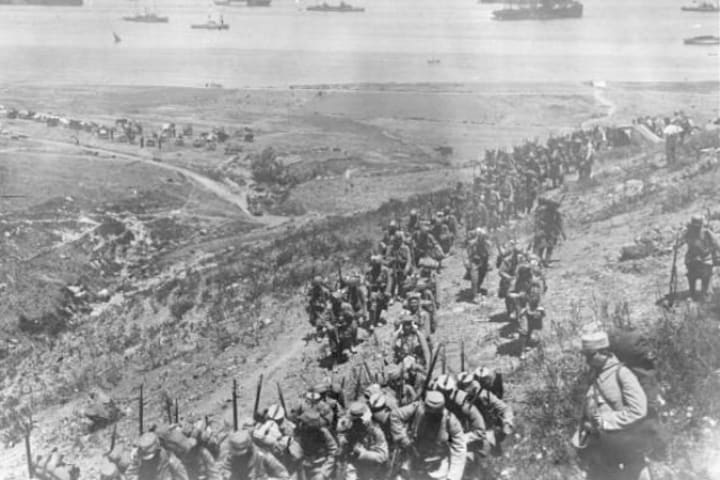
The Gallipoli peninsula was a site of a major battle in the First World War, and would have been remembered as one of many battles in the larger conflict if it wasn’t for some disastrous decisions on the allied side.
Fought between the invading allied forces – primarily made up of soldiers from Britain, Australia and New Zealand – and Ottoman forces, the goal of the battle was to root out the Ottoman forces from the region, allowing them an entry point into Turkey. Sadly, the Ottomans were really dug in, as the allied soldiers – close to 500,000 in numbers – couldn’t even advance a few meters after landing on the beach, as they were constantly bombarded by the well-supplied Turkish troops. They had the advantage of high ground and fortification, as well as ample ammunition and artillery that would have allowed them to defend their position for months.
All in all, around 58,000 allied troops ended up losing their lives that day, making it one of the biggest military losses in British history.
3. The Italian Invasion Of Greece
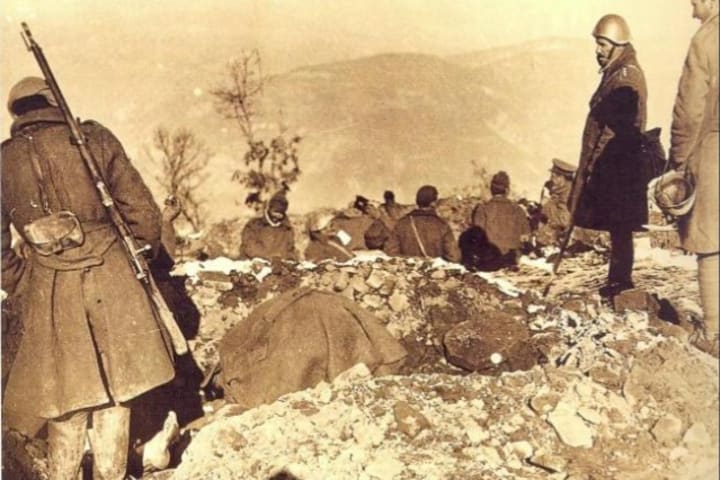
The outcome of WW2 seems to be a foregone conclusion now, as something as evil as the Nazis could have never won, anyway. However, that wasn’t the case in the early years of the war. The German and Italian war machine was scarily-effective in Europe, making quick work of powerful militaries in the region, and it really could have gone either way at that time.
That’s probably why Italy decided to invade Greece in late 1940, as it was fair to assume that they would keep winning. That would turn out to be the blunder that would change the tide of the war, at least for the Italians, as Greece wouldn’t go down without a fight.
The Greek military – supported by one of the fiercest civilian resistance movements of the war as well as other allied nations – successfully stopped the Italian invasion and forced them to retreat before the winter was over, and launched a counter offensive Italians could never push back. The defeat was the first allied victory over an axis power at that time, which was saying a lot.
2. The Tet Offensive
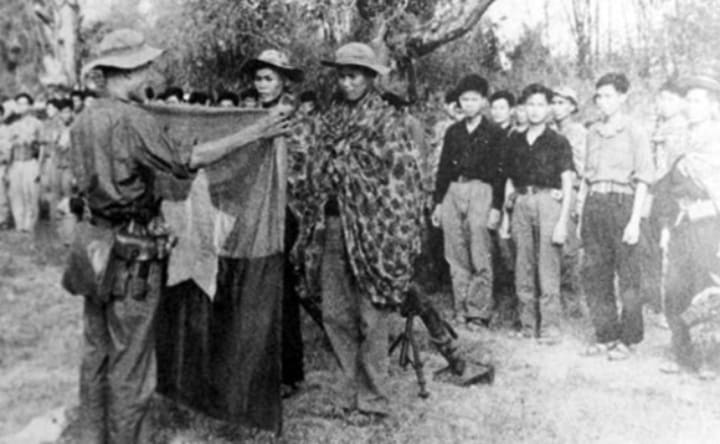
The Vietnam War is often seen only from the lens of the USA, as everyone on the North Vietnamese side is often clubbed together as a monolithic group. That was hardly the case, as they went through their own series of internal disagreements and factional rivalries. One of the biggest causes for that disagreement was the Tet offensive, originally devised as a nationwide uprising. While some of the leaders supported the idea that once they invade the South Vietnamese cities, people would just start to join their cause, that didn’t quite happen.
Instead, the offensive – led by North Vietnamese soldiers and Viet Cong fighters – ended in a huge disaster for them, bolstering the more radical elements in their forces. They got little to no support from the urban population in the supposed ‘uprising’, as South Vietnam was relatively stable at that time.
1. The Habsburg Invasion Of Switzerland
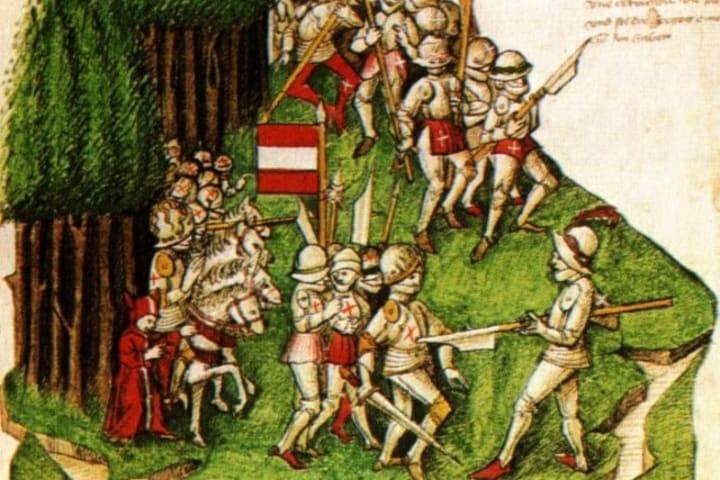
Switzerland seems to be a country of pocket knives and artisanal cheese, and it’s tough to imagine it as a military power of any kind. That is only until you read up on really any part of their history.
The reason Switzerland likes to mind its own business in every major war is because it is secretly a ridiculously-strong military power. It’s also placed in the most strategically-sound place in Europe, as it’s surrounded by mountains on all sides. Many kingdoms have made the mistake of trying to invade it, though the biggest of them has to be the Habsburgs in the 14th century.
At the time, all of the Swiss cantons were under the control of the Habsburgs in Austria, though the Swiss were getting pretty tired of that arrangement. They decided to declare independence and formed a Swiss confederation of their own. That was, understandably, fiercely opposed by the Habsburgs, who sent in an army of 15,000 of the best Imperial knights they had to crush the rebellion.
While it may sound like a good plan, they didn’t consider the terrain. The Swiss forces – made up of peasants and a handful of experienced soldiers – were heavily outnumbered, though knew their territory well. When the invading forces arrived, they were maneuvered into a mountain pass and slaughtered. The Habsburgs lost around 2,000 of their most elite cavalrymen in the fight, and the battle turned out to be one of the most crucial battles in the Swiss struggle for independence.






Comments
There are no comments for this story
Be the first to respond and start the conversation.